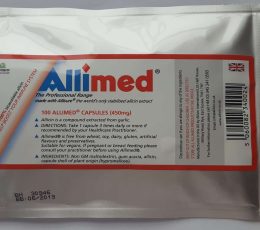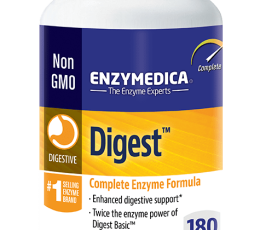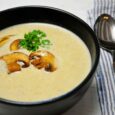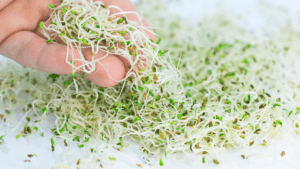Fructans are a type of complex carbohydrate found in many foods, including cereals and legumes and some fruits and vegetables.
Some people are intolerant to these foods, due to not being able to digest the fructan component.
Find out what foods contain fructans and what you can do if you are fructans-intolerant.
Fructans? What are they?
A fructan is a molecule made up of linked fructose molecules, plus a glucose molecule at the end. Simply put, they are a kind of complex sugar, that needs to be digested into fructose (and glucose) before you can absorb it. Fructans are also known as fructooligosaccharides, and are part of the FODMAP group of carbohydrates that is associated with digestive problems in some people.
Where irritable bowel syndrome (IBS) is a problem, fructans may be a culprit, leading to a build-up of fermentation in the large intestine (bowel), causing abdominal pain (tumy ache), bloating and distension, gas (flatulence) and nausea. Some people may also be troubled by diarrhoea, constipation or both. Limiting one’s intake of fructans may help in some cases but as fructans are found in foods that form part of a healthy and balanced diet, it’s important to dig a bit deeper into the problem.
If you get digestive symptoms after eating wheat, onions, garlic, asparagus, beans, watermelon and other foods listed below, you’ll know that it’s hard to avoid them completely and you need a strategy!
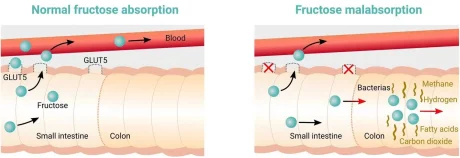
Fructans are long chains of the fruit sugar, fructose. The image above demonstrates the normal mechanism of fructose absorption, and what happens when this is not working well.
The hydrogen and methane gas produced from malabsorbed fructose can be measured in a hydrogen-methane breath test.
What Foods Contain Fructans?
Foods that are high in fructan include:
Cereals / Grains: wheat, spelt, rye and barley. Note that these also that contain gluten. Some people with non-coeliac gluten senstivity (NCGS) are reacting to the fructan content of those grains.
Pulses: kidney beans, baked beans, barlotti beans, soy beans, black beans, mung means, navy beans, lima beans and split peas. Other legumes, such as chickpeas, are a common problem too. These may have high amounts of a different compound, called galactoligosaccharide (GOS).
Vegetables: the whole onion family (allium), including onions, garlic, leeks, and shallots. Also jerusalem artichoke (sometimes referred to as “fartichokes”, asparagus, beetroot, Brussels sprouts, broccoli, savoy cabbage, and smaller amounts in snow peas.
Fruit: stone fruit, including apricot, nectarine, white peach, and plum. Watermelon, grapefruit, persimmon, and pomegranate, Dried fruit high in fructans includes apricots, cranberries, dates, figs, mango, papaya (pawpaw), and prunes.
Nuts: cashew nuts
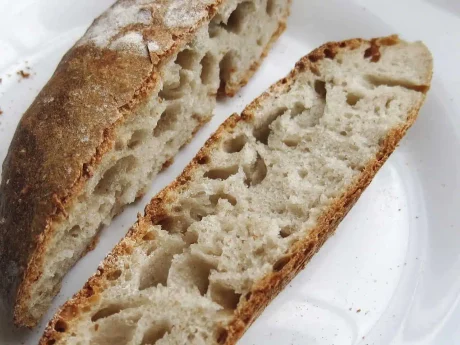
Gluten and Fructans
Some grains contain gluten. These are wheat (including spelt, kamut etc.,), barley and rye. While coeliac disease is an autoimmune disorder that is triggered by gluten, causing digestive and absorption problems, non-coeliac gluten sensitivity affects many people. As the gluten-containing grains are also high-fructan foods, it can be difficult to know which component (or components) are triggering symptoms.
A blood test for coeliac disease is quite reliable at detecting this condition, as long as you are consuming normal amounts of gluten-containing grains in the weeks leading up to testing. A confirmatotry test involves an invasive procedure called a gastroscopy. Non-coeliac gluten sensitivity is more difficult to diagnose. If you thinks you may have an intolerance to gluten-containing products, it may be due to gluten or fructans.
Fructans and IBS
Irritable bowel syndrome (IBS) is a disorder primarily affecting the large intestine, though small intestinal bacterial overgrowth (SIBO) can trigger similar symptoms. Some foods, or other factors such as stress, hormonal changes or other illnesses can also be associated with IBS because of how they affect the gastrointestinal tract.
People with IBS that appears to be related to food intolerance may be triggered by fructans as well as other fermentable short-chain carbohydrates (FODMAPs). Sometimes this is a dose-dependent effect, or associated with co-consumption of other fermentable compounds.
To determine your IBS triggers, we recommend working with one of our team to determine why you might be fermenting substances in such a way to trigger symptoms. You should be able to consume normal, healthy food. Getting you there is our goal.
One way to determine if fructans-containing foods are causing your distress is an elimination diet.

